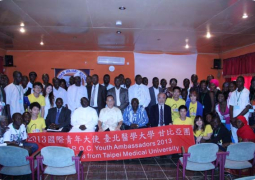This is understandable, since now there is very heavy dependence on domestic revenue to run the country.
For instance, there are revenue targets to be met monthly (some years ago, it was D300 million monthly), so that salaries and other recurrent commitments could be met.
However, as we go after every dalasi due to the government as revenue, we must be careful and make sure we strike the right balance, lest we kill the goose that lays the golden eggs!
We must also ensure fair-ness in the way we go about collecting taxes and rates.
If we are to go by the lead story in today’s paper, it seems the municipal and area councils have started speaking out and, in fact, they are crying foul.
They are saying the central government is showing a very big appetite lately, and wants to gobble up everything, leaving them with only the crumbs.
Yet the local government authorities also have commitments to meet; obligations to fulfill. These must be considered, and they be allowed to collect what is rightfully their dues.
They must also be given what is theirs by right. We mean the annual subvention from the central to the local governments.
It was made known, during meetings convened recently by the members of the select committee on lands and regional governments on tour, that some councils (or is it all the councils?) have not been receiving the annual subvention.
Councils have also, for long, complained that they are owed millions of dalasi in unpaid rates by the central government - which, for instance, has all these office buildings located in the capital city - and the numerous office buildings and other installations of public enterprises.
Added to this, it seems, is the problem of priority now being given to central government revenue collection over that of the local councils.
In other words, the interests and rights of the central government now take precedence over and above that of the local authorities.
Is it a case of the mighty having their way? Are we sure we are doing things according to the laws of the Gambia, starting with the constitution – supreme law of the land?
In any case, the effect of the current arrangements for national revenue collection has been to further deprive the councils of much-needed revenue to run their affairs – pay their staff, fund their own development projects, and so on.
This, it is our view, is a matter for the members of the National Assembly to look at and address, especially the relevant select committees, starting with the select committee referred to above which monitors the performance and activities of the councils.
"Lets have faith that right makes might; and in that faith let us, to the end, dare to do our duty as we understand it."
Abraham Lincoln




